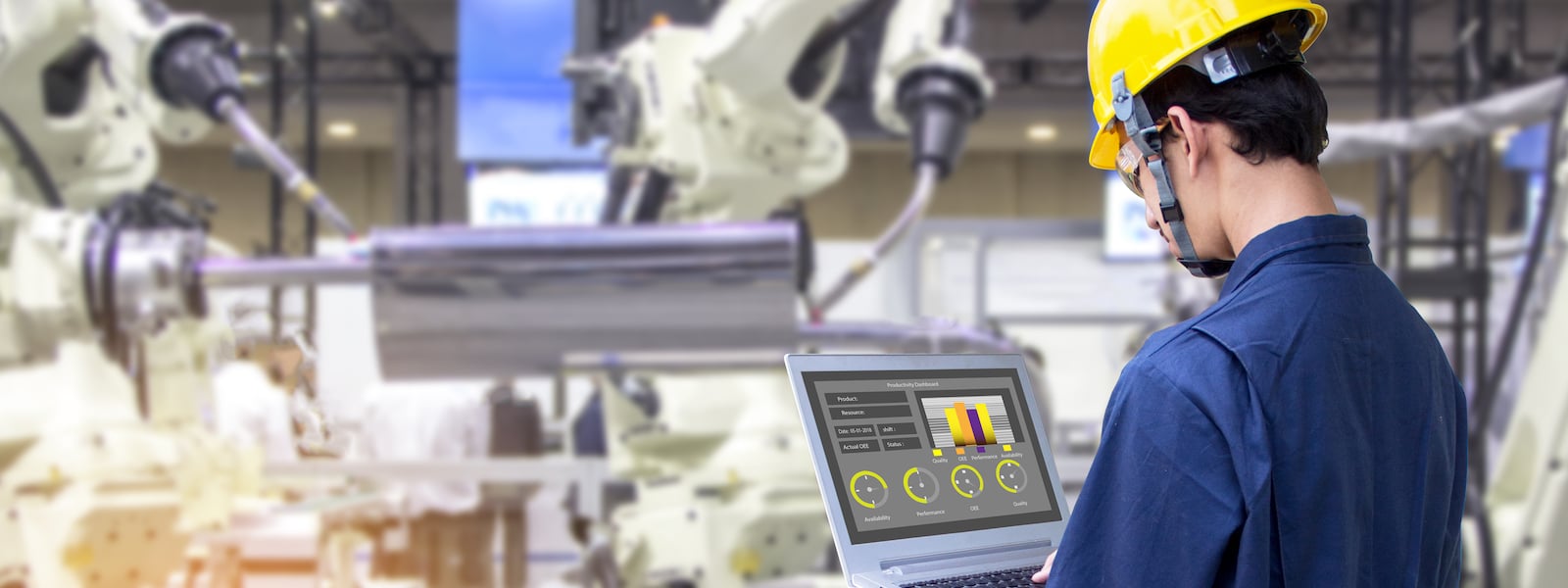"The concept of "artificial intelligence" has such surgically specific approaches that hardly anyone can talk about it in a qualified way, if they do not have a deeper involvement," said Franz Wenzel, Senior Consultant at enomyc. He is currently doing his doctorate in energy law on the subject of "Smart metering and flexible consumers". The aim for this article is "to demystify the nebulous term "AI"."
What exactly is meant by "artificial intelligence"? What significance does AI have for small and medium-sized enterprises? And above all: Which approaches promise a positive economic effect?
ON THE TIP OF EVERYONE’S TONGUE – YET DIFFICULT TO ACCESS
How many different types and subforums can be differentiated in AI? Does it also exist outside major projects such as Watson and AlphaGo? Which current application examples of AI already exist in German medium-sized companies and why should they concern themselves with the implementation now?
The truth is that the scale of AI and its impact are still relatively rare to observe in the industrial landscape. What we see is often the forerunner of AI - Robotic Process Automation (RPA) and the digitization of business processes (Process Automation). But even this development - as studies show - has a relatively low penetration rate of only 39% in Germany. Now this insight is by no means intended to downplay or even discourage the current state of development - quite the opposite:
If the German Mid-Sized market desires to continue to play at the forefront of the world economy with its hidden champions - especially in the emerging economic situation - then there is no way around it: Various instances of the AI should be included in the business models - and better sooner than too late. But how? Which AI solutions can relieve the burdens of medium-sized companies and which can provide capacity expansion and sales potential?
THE CONCEPT AND MEANING OF AI
If reference is made in this article to "artificial intelligence", then there is no question of a system. Artificial intelligence is a concept. The idea behind the use of artificially intelligent solutions is to make a system of employees* work "intelligently". The overall goal is to help a company perform its processes and activities in a way that has not been possible before, while freeing up the workforce's capacity for other important, higher-level tasks.
"STRONG" AND "WEAK" AI
In general, "artificial intelligence" can be divided into two groups: "narrow" - weak AI and "strong" - general AI. The latter is the subject of current research. While we know "strong AI" better from sci-fy and pop-culture, "narrow AI" is already common practice. It is designed to respond to instructions – to algorithms to which it is bound and within the framework of which it remains bound. And for good reason:
Their function is to execute one task after another and to improve the execution of these tasks. "Weak AI" is a concept that is intelligent but was developed only for a specific task. A good example of a powerful, yet still "weak” AI is AlphaGo, by DeepMind (now Google). The computer program commands the game Go so well that it has been able to defeat the world champion, Lee Sedol in a spectacular showdown, several times. However: It exclusively controls this game - it cannot make a single move when it goes to the game of chess.
Now, AlphaGo is from the development facility of a large specialized company and is the result of years of intensive research - there are already more than enough smaller solutions that have been developed for medium-sized businesses and are already being used by them.
 TYPICAL PITFALLS IN THE IMPLEMENTATION OF KI
TYPICAL PITFALLS IN THE IMPLEMENTATION OF KI
-
First of all, it is important to remain realistic and rethink business expectations: there is no company-wide AI solution that can perform all employee tasks. AI is made to perform a specific task at the moment. It is a very effective tool, but it does not replace the human intellect.
-
For it to work properly, an AI solution must be "trained" for its task within the company - more precisely: it must be provided with a lot of high-quality, structured data. Two important components enable the use of AI in certain areas of work - or prevent it. One is structured data, the other is specialist expertise. In most cases, there is a lack of both
-
The implementation of AI is not necessarily the same as that of an ERP system and should therefore not be considered on the same level - at least not at the beginning. Companies are well advised to start by looking specifically for areas of application in which an AI solution makes sense. A detailed analysis is a must: it reveals any limitations and determines whether workflows need to be reassessed and minor changes made.
In the best case, a company starts with smaller assignments to secure "quick-wins" and gain valuable experience. To some extent there are already small, but impressively good AI solutions on the market.
APPLICATION EXAMPLES OF AI SOLUTIONS FOR MEDIUM-SIZED COMPANIES
Intelligent sensors, intelligent assistance systems, expected maintenance dates and optimized resource management: These approaches are currently the most promising. Much more specific are the numerous solutions from the following application examples, which are already in use:
-
Automation of processes
AI solutions can be used to prepare invoices, update customer records or send targeted promotions.
-
Customer service
Possible problems are detected and avoided even before users contact support. In customer service itself, the use of chatbots is growing: they help the customer immediately via chat or refer to the right contact person.
-
Staff Solutions
AI-supported personal assistants help with appointments, meeting deadlines - even with the organization of business trips.
-
Effective email management:
Google is leading the way with the Smart Reply app: It filters messages according to their content and suggests suitable answers itself.
-
Marketing Automation
KI investigates the user behavior of consumers and implements tailor-made, targeted and individual advertising campaigns. This enables companies to reach potential customers with the right offer at the right time.
-
Sales
Know and offer what customers are interested in before they search for it: Based on user behavior, the algorithm often recognizes specific interests in advance and creates the next offer.
 THE KI-SPECIFIC STATUS QUO IN GERMAN MEDIUM-SIZED COMPANIES
THE KI-SPECIFIC STATUS QUO IN GERMAN MEDIUM-SIZED COMPANIES
Currently, it is said that only five percent of German companies use AI solutions in the commercial sector. German companies mainly still use technologies in the area of rule-based systems or robot-controlled process automation. Though, at the same time, companies that are already AI-affine and already use the technology in a variety of ways report very positive experiences. In addition, surveys show that consumers also welcome the use of artificial intelligence: 70 percent of respondents stated that they consider chatbots to be useful in ordering processes.
Companies that primarily treat AI technologies with skepticism and distrust run the risk of losing important market shares to the competition. In order to remain competitive, it is advisable to integrate AI - at least partially - into one or more of the business processes.
SaaS SOLUTIONS AND RECOMMENDATIONS FOR ACTION
Large customer specific AI projects are not always accessible for medium-sized companies. In contrast, out-of-the-box (Software as a Service) solutions for midsize companies – which are provided to them by third parties - are driving the implementation of AI on a large scale. The advantage of SaaS solutions is that they are already available on the market and - in contrast to the development of own tailor-made AI solutions - require less expertise
The start of the implementing an AI solution is done as soon as the company has built-up more internal knowledge about the concept of AI. Once the secret of "artificial intelligence" has been unveiled, the first approaches to concrete implementation can be pursued. One of the main arguments might be that AI increases the value of a company and its employees: The technology frees-up additional capacity and resources in order to find not only new, but also better ways to accomplish specific tasks.
Instead of remaining in a negative attitude, observing the competition and waiting for its success with the help of AI, it is more worthwhile to find out where one's own entrepreneurial potential stands.
How can AI help steer your company's ability to do business into the future? Are you interested in thinking through these topics together with us? We look forward to hearing from you.


